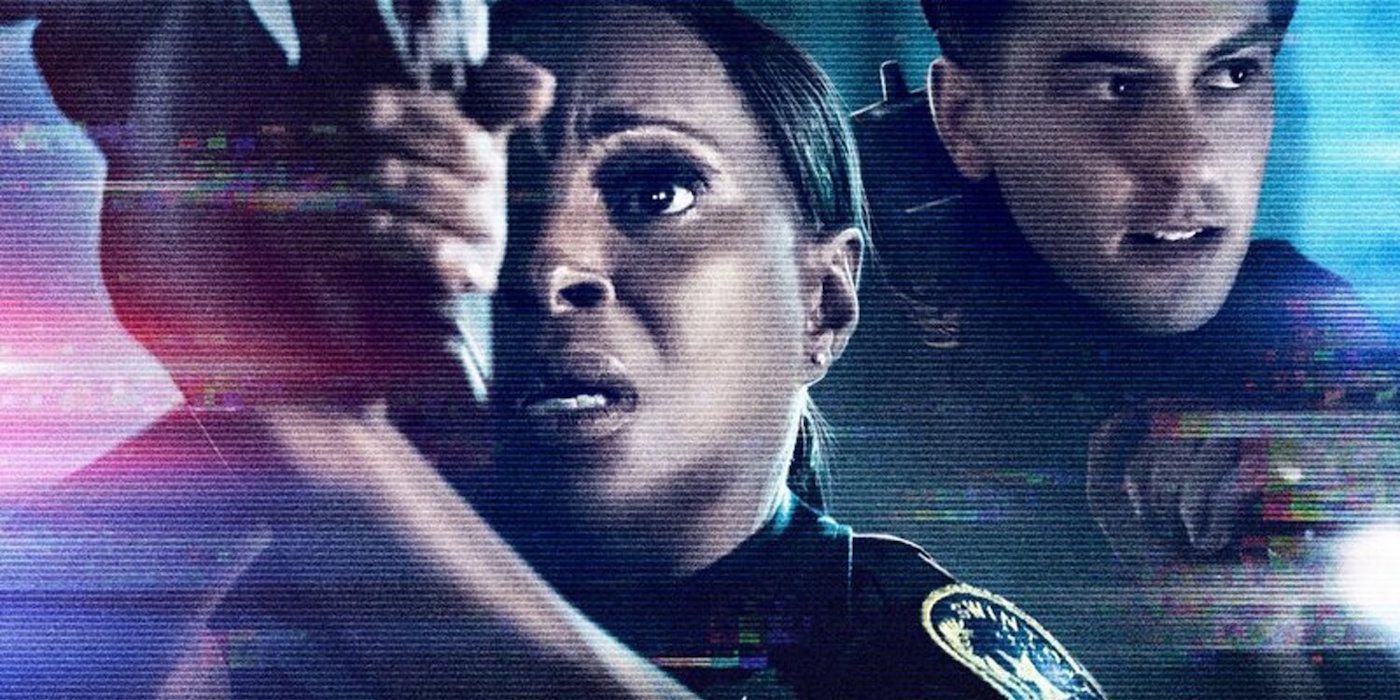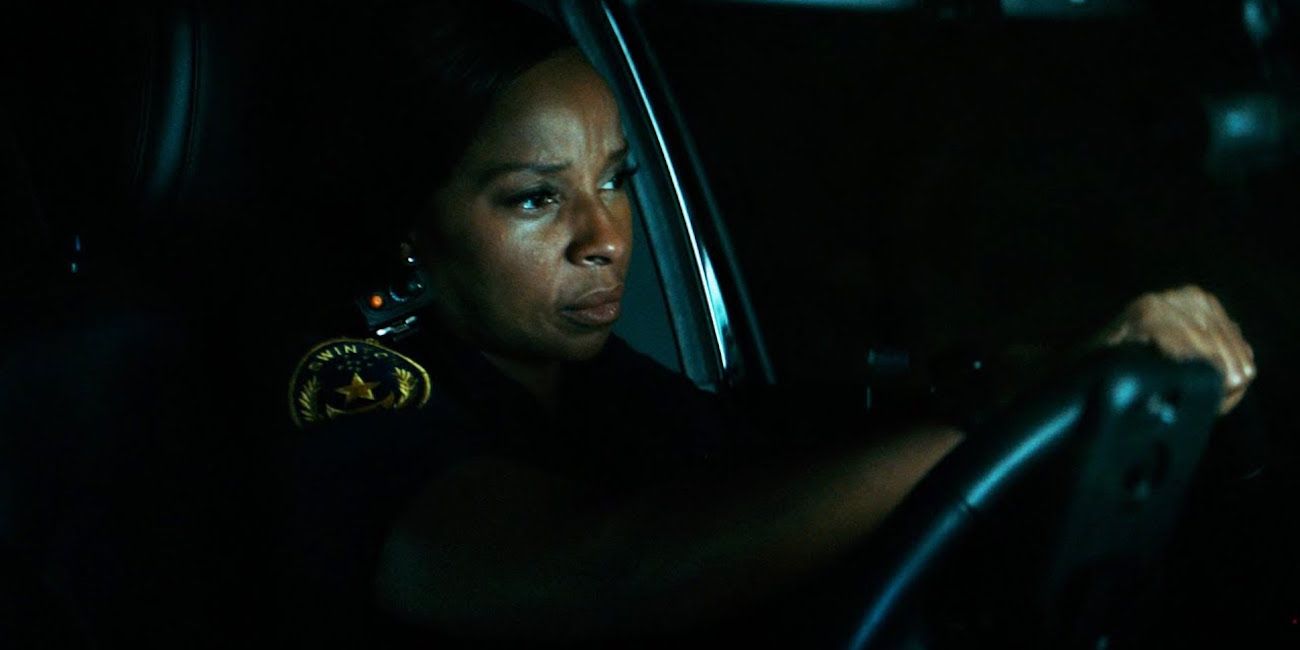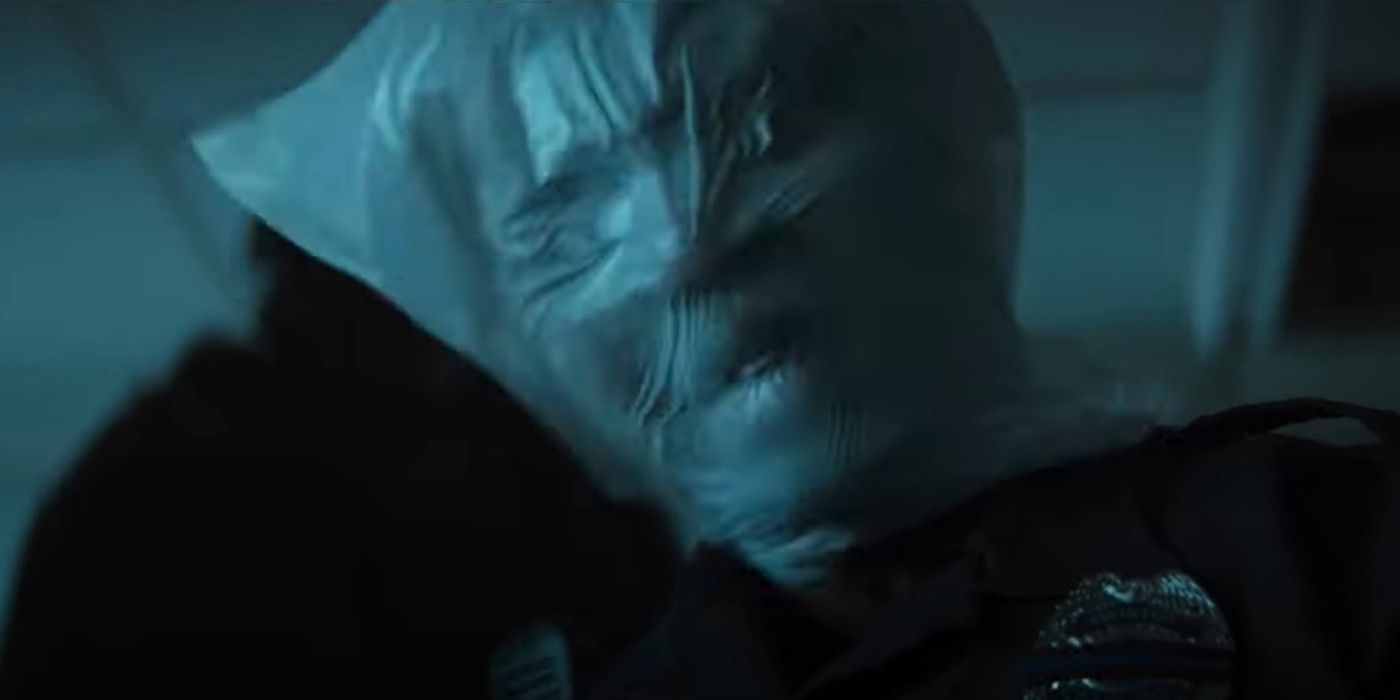Body Cam begins with a premise ripped from the headlines: Police officers are acquitted after shooting an unarmed African-American man, sparking riots and tension across the United States. Events quickly take a turn for the supernatural, however, when a lone officer, Ganning (Ian Casselberry), pulls over a suspicious van and is murdered by an unseen entity. It’s these two threads that drive the film, a gory ghost story that also speaks to the real-world issue of abuse of power by law enforcement. Yet while the movie is an effective horror story, it is far less successful as social commentary.
After the prologue, the movie gets into the heart of the plot. On the same day that the police officers are acquitted and her colleague is murdered, Mary J. Blige’s Officer Renee Lomito-Smith returns to active duty after being put on leave for punching a civilian. The incident happened on the heels of the drowning death of her young son, and Renee is eager to get back to the distraction of work. She’s partnered with rookie cop Danny Holledge (Nat Wolff), and when the call comes in about Ganning’s traffic stop gone wrong, the pair go to investigate.
The vehicle Ganning pulled over is nowhere to be found and neither is he, but his car is covered in blood -- and teeth. Renee and Danny eventually find Ganning’s mutilated body strung up in a nearby field. Meanwhile, Renee is able to watch his car’s dash cam to see his final moments, but the footage won’t play for anyone else. This sets Renee off in pursuit of the truth about what happened, with Danny often reluctantly along for the ride. There are more deaths of both police officers and civilians as Renee continues to unravel the mystery.
Renee's journey results in a genuinely scary horror story about an angry supernatural entity. The movie is full of gory images and well-earned jump scares. Scenes are often dark and foreboding, and shots that limit what the viewer can see along with smart pacing keep the tension high. As might be expected in a movie called Body Cam, the action is periodically shown from the perspective of dash cams, body cams and security cameras. While the shaky, distant or blurry images this leads to can be frustrating to watch, they also feel appropriate and specific, and help the viewer see things from Renee’s perspective.
However, while a third-act twist seeks to turn the film into a commentary on the real-life horrors brought about by corrupt cops, this part of the film has far less impact. The movie spends so much time cultivating the supernatural horror of the story that it eclipses this not-at-all supernatural revelation. Ultimately, this feels like a missed opportunity. Parts of Body Cam hint at a far more substantive story lying underneath the graphic blood and guts, but this part of the movie is never given the attention it deserves.
The game cast generally turns in solid performances, and Mary J. Blige makes for a strong lead. While this role isn’t as compelling as some of Blige’s other work, such as her Oscar-nominated turn in Mudbound or her portrayal of a time-hopping assassin in the Netflix series The Umbrella Academy, she does a good job holding the movie's center. In addition, Nat Wolff is sympathetic as an uncertain rookie and David Zayas is convincing as Sergeant Kesper.
Body Cam is a successful horror movie, and anyone who's looking for a graphic, chill-inducing thrill ride will get exactly what they want from the film. Those hoping for a more thoughtful meditation on police power and corruption, however, will be disappointed.
Body Cam, directed by Malik Vitthal and starring Mary J. Blige, Nat Wolff, David Zayas and Anika Noni Rose, is available for purchase on digital May 19, for rent on demand on June 2 and on DVD July 14.



